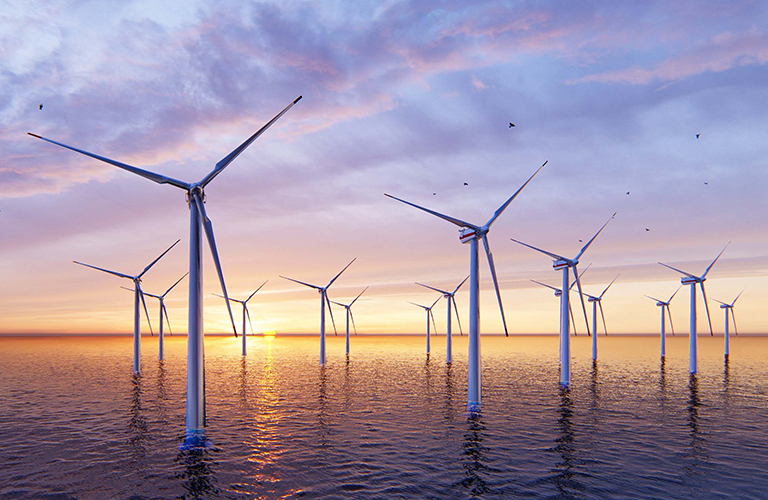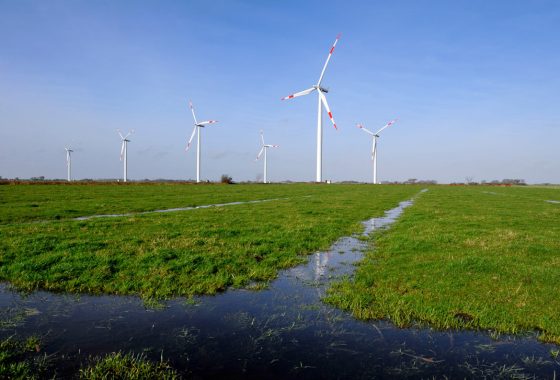Regenerative Energy Industry
Renewable energies – for Bremen and Bremerhaven, this primarily means wind energy. The wind always blows on the coast. And where the wind blows, electricity can be harvested. Since the beginning of commercial wind energy use, Bremen and Bremerhaven have been major players in the industry. With numerous companies, the two cities cover important areas of the value chain. Here, wind farms are planned, monitored and maintained, innovations are tested, and specialists are trained.
Thanks to Bremen's proximity to the North Sea, the routes to the high seas are short. Just as short as the connection to science: top research institutes, such as the Fraunhofer Institute IWES or the University of Bremen, help to advance wind energy and increase its efficiency. At the same time, they train specialists sought by the companies in the area.
Bremerhaven is also home to the largest corporate network in the offshore wind industry, the Wind Energy Agency WAB. With its numerous members, it is an important interface between politics, business, and science.
Offshore wind energy: a future industry
Offshore wind energy plays a central role in the energy transition, as it represents a sustainable and efficient solution for generating renewable energy. It opens up a crucial future market for shipyards and offers considerable value creation potential for coastal locations by strengthening the local economy and creating new jobs in the areas of design and development as well as manufacturing. The Free Hanseatic City of Bremen is supporting the project by modernizing the West Quay in Kaiserhafen III and by participating in the federal government's special guarantee program. With its proximity to the North Sea and strong networking between business and science, the region offers ideal conditions for innovative offshore technologies.
Converter platforms – an opportunity for Bremen as a location
Converter platforms are the heart of the connection of offshore wind farms and are of fundamental importance for the energy transition. Their job is to bundle the electricity produced in offshore wind farms and convert it into direct current to be transported to the mainland over long distances with little loss. For the offshore wind farms to be built in the North and Baltic Seas, numerous converter platforms will be needed in the coming years in order to transmit the electricity generated with minimal loss and feed it into the grid. German shipyards are also currently examining whether and how they can participate in this business area.
The Lloyd Werft in Bremerhaven and its shareholders, the Zech Group, Heinrich Rönner GmbH, and Fr. Lürssen Werft, are preparing to start building converter platforms for offshore wind farms. Together, the partners want to develop this promising business area and provide new impetus for the offshore wind industry.
Hydrogen as a storage technology for wind energy
Hydrogen will play an important role in the future renewable energy supply. Green hydrogen is already being generated in Bremerhaven using wind energy. It is provided at a hydrogen filling station for cars as well as for buses in Bremerhaven. Further developments in this area are summarized in the key technology “Hydrogen”.
Further information


